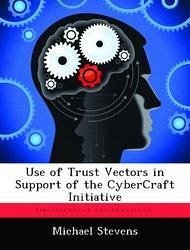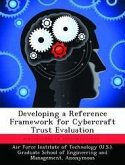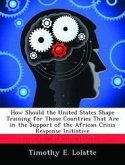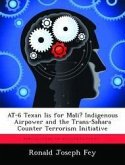The CyberCraft Initiative is designing a framework for command and control of future Air Force Cyber-weapon systems, that autonomously operate and defend the Air Force networks and information systems to provide Cyberspace Superiority in support of the defense of the United States. The fundamental research question of the CyberCraft Initiative is "What is required for a commander to trust a CyberCraft to autonomously defend military information systems?" The Trust Vector model is one method of integrating trust into the CyberCraft fleet. Trust Vectors define trust and distrust between agents based on three components; current and historical data, intrinsic knowledge of the remote agent's abilities, and recommendations from other agents. This research finds that the Trust Vector model can be modified to integrate trust into the CyberCraft Initiative. Several expansions to the model are proposed, including applying the Trust Vector model to an asynchronous paradigm for data transactions. This research also determines the limits of the utility of historical data for the Trust Vector model.
Bitte wählen Sie Ihr Anliegen aus.
Rechnungen
Retourenschein anfordern
Bestellstatus
Storno








